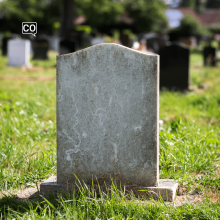Morir (to die) - Pretérito anterior, indicativo (Anterior preterite, indicative) - Spanish

Morir - Conjugation of to die in Spanish: Conjugation table, examples and exercises in the anterior preterite, indicative tense (Pretérito anterior, indicativo).
Pretérito anterior, indicativo (Anterior preterite, indicative)
All conjugations and tenses: Morir (to die) - conjugation and tenses - (Spanish)
Syllabus: Spanish lesson - Infancia y recuerdos (Childhood and memories)
Conjugation of to die in Pretérito anterior
- yo hube muerto I had died
- tú hubiste muerto You had died
- él/ella hubo muerto he had died
- nosotros/nosotras hubimos muerto we had died
- vosotros/vosotras hubisteis muerto you had died
- ellos/ellas hubieron muerto they had died
Example phrases
- Cuando yo hube muerto, ellos descubrieron la solución. When I had died, they discovered the solution.
- Cuando tú hubiste muerto, alguien plantó un girasol. When you had died, someone planted a sunflower.
- Cuando él hubo muerto, se notó la falta de su respiración. When he had died, the lack of his breathing was noticed.
- Cuando nosotros hubimos muerto, la vaca se alejó. When we had died, the cow walked away.
- Cuando vosotros hubisteis muerto, el caballo ya había vuelto. When you had died, the horse had already returned.
- Cuando ellos hubieron muerto, el recepcionista se enteró del problema. When they had died, the receptionist found out about the problem.
Exercise: Conjugate the verbs - morir (to die)
Instruction: Choose the correct word, read the sentence out loud and translate.
Show answers Show translationMorir (Pretérito anterior, indicativo)
1. Cuando nosotros ..., la vaca se alejó.
2. Cuando ellos ..., el recepcionista se enteró del problema.
3. Cuando vosotros ..., el caballo ya había vuelto.
4. Cuando tú ..., alguien plantó un girasol.
5. Cuando él ..., se notó la falta de su respiración.
6. Cuando yo ..., ellos descubrieron la solución.